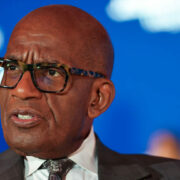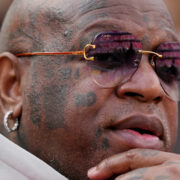Russia, which has been criticized for “exporting starvation and suffering” by blockading Ukrainian grain exports, sent its foreign minister on a public relations tour this week in Africa.
Sergei Lavrov is visiting African capitals and pushing the idea that Russia is not the aggressor in Ukraine and didn’t cause the food crisis that has hit the continent hard.
Russian President Vladimir V. Putin is promoting himself as the leader of a global movement that opposes the U.S. and its allies. Lavrov took that message to Africa on Sunday, hoping to turn rising fertilizer prices and a food crisis across the continent into a public opinion win.
He was well received in Egypt, Republic of Congo, Uganda and Ethiopia, Financial Times reported.
In an article published in newspapers ahead of his visit to the four countries, Lavrov praised African countries for rejecting sanctions on Russia and resisting Western efforts to “impose a unipolar world order.”
“We know that the African colleagues do not approve of the undisguised attempts of the U.S. and their European satellites to gain the upper hand, and to impose a unipolar world order to the international community,” Lavrov wrote.
U.S. Secretary of State Tony Blinken accused Russia in June of “blackmail” and “exporting starvation and suffering” as grain piled up in Ukrainian ports. He claimed Russia was blocking Ukrainian grain exports and hoarding its domestic supply in response to Western sanctions.
Are you interested in getting smart on Life Insurance?
Click here to take the next step
In March, 17 African countries abstained from a U.N. General Assembly vote condemning the Feb. 24 invasion of Ukraine. Eight other African countries were absent and one voted against.
Ahead of Lavrov’s trip, Russia agreed to let Ukraine resume grain exports, a sign of Putin’s apparent concern for public opinion across the developing world, New York Times reported.
Russia is seen as more sympathetic to the cause of African liberation struggles than many western countries, according to Comfort Ero, president of the Crisis Group think tank. “For Russia, it’s about building up alliances and showing the west it hasn’t won the narrative,” Ero said.
Russia has good relations with many African countries, including some the U.S. is reluctant to deal with, and is the continent’s top arms supplier.
Some francophone African countries are actively embracing Moscow as part of a rejection of former colonizer France, according to Kamissa Camara, senior adviser on Africa at the US Institute of Peace. Mali has expelled the French military and hired a Russian mercenary group, Wagner, to fight against a jihadist insurgency, Financial Times reported.
Uganda was one of the countries that abstained from U.N. condemnation of the Russian invasion of Ukraine. President Yoweri Museveni said recently that it was best to keep the government’s views “private,” but his son and expected political heir, Gen. Muhoozi Kainerugaba, tweeted that Vladimir Putin was “absolutely right” to invade.
Ugandans have been protesting against rising prices. A gallon of gasoline in the capital, Kampala, costs about $6.90, AP reported. In South Africa, the price of staples such as maize meal has increased by about 11 percent year-on-year, flour by 24 percent, cooking oil by about 69 percent, and bread by about 15 percent.
The U.S. hopes to strengthen political ties with African countries at a planned summit of African leaders in Washington, D.C. in December 2022 — the first of its kind since 2014 when President Barack Obama hosted such an event











Comments